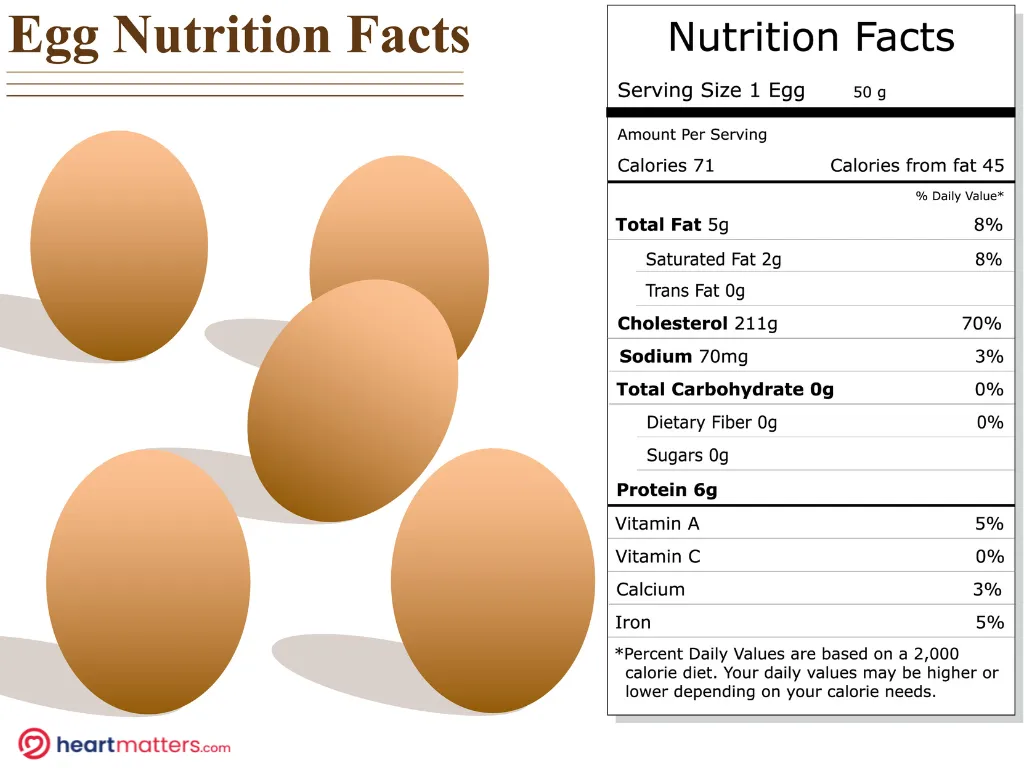Eggs are a popular food item that can be eaten in various forms such as boiled, scrambled, poached, and fried. They are a rich source of high-quality protein, vitamins, and minerals that can provide numerous health benefits to our body. However, there has been a long-standing debate over the effects of egg consumption on heart health. This article will explore the relationship between eating eggs and heart health.
The Nutritional Powerhouse: Exploring the Benefits of Eggs
Firstly, let’s talk about the nutritional benefits of eggs. Eggs are a rich source of high-quality protein, containing all the essential amino acids our body needs. They are also a good source of vitamin D, which helps absorb calcium and vitamin B12, necessary for nerve and red blood cell health. Also, eggs are a rich source of choline, an essential nutrient for brain health and development.

Cracking the Egg Cholesterol Myth
Now, coming to the relationship between egg consumption and heart health, several studies have been conducted over the years to understand the link between the two. One of the significant concerns regarding egg consumption is their cholesterol content. Eggs are high in dietary cholesterol, which is thought to increase the risk of heart disease. However, recent research has shown that the cholesterol in eggs has minimal effect on blood cholesterol levels and does not increase the risk of heart disease in healthy individuals.
 Energizing Pick-Me-Up Snack: This wholesome snack consists of a perfectly boiled egg placed on a slice of hearty sourdough bread, generously topped with smashed avocado. A pinch of flaky sea salt and a sprinkle of red chili flakes add flavor and a zest to this satisfying and nutritious snack.
Energizing Pick-Me-Up Snack: This wholesome snack consists of a perfectly boiled egg placed on a slice of hearty sourdough bread, generously topped with smashed avocado. A pinch of flaky sea salt and a sprinkle of red chili flakes add flavor and a zest to this satisfying and nutritious snack.
Scientific Insights: What Studies Say About Eggs and Heart Health
A study in the American Journal of Clinical Nutrition (1) found that eating up to one egg daily didn’t raise the risk of heart disease or stroke in healthy individuals. Also, recent research in BMJ (2) reviewing three large US studies suggests that moderate egg consumption (up to one egg daily) isn’t linked to higher cardiovascular disease risk and may even lower it in Asian populations.
Eggs and Heart Health: A Balanced Perspective
However, it is important to note that individuals with existing heart conditions or high cholesterol levels should consult their healthcare provider before consuming eggs regularly. Additionally, how eggs are cooked can impact their effect on heart health. For example, frying eggs in butter or oil can add extra calories and unhealthy fats, harming heart health. Therefore, it is recommended to opt for boiled or poached eggs, healthier options.
Conclusion
In conclusion, consuming eggs in moderation can provide several nutritional benefits and does not increase the risk of heart disease in healthy individuals. However, individuals with pre-existing heart conditions or high cholesterol levels should consult their healthcare provider before incorporating large volumes of eggs into their diet. Choosing healthy cooking methods while preparing eggs to optimize their health benefits is also important.
Relevant Links
Rong, Y., Chen, L., Zhu, T., Song, Y., Yu, M., Shan, Z., … & Hu, F. B. (2013). Egg consumption and risk of coronary heart disease and stroke: dose-response meta-analysis of prospective cohort studies. The American Journal of Clinical Nutrition, 98(1), 146-159. doi: 10.3945/ajcn.112.051318
Drouin-Chartier J, Chen S, Li Y, Schwab A L, Stampfer M J, Sacks F M et al. Egg consumption and risk of cardiovascular disease: three large prospective US cohort studies, systematic review, and updated meta-analysis BMJ 2020; 368 :m513 doi:10.1136/bmj.m513



